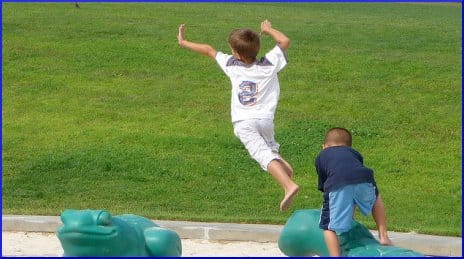
Childhood Obesity News has been looking at some of the mistakes doctors make, but what could they be doing differently, and correctly? Dr. Pretlow believes in the usefulness of asking obese kids about their lives and feelings, especially the feelings that make them seek food. He has been doing this for many years, through the Weigh2Rock website, and parents are advised to ask questions too — and listen to the answers.
For Pediatric News, Dr. Pretlow composed a list of five questions that a health professional should pose to an overweight or obese youth:
- Do you ever feel stressed, sad, or bored?
- Do you find yourself eating to make yourself feel better?
- Do you struggle to resist cravings for rich food, like junk food or fast food, knowing full well that you don’t want to gain any more weight?
- Do you feel that your eating is “out of control”?
- Do you find yourself eating to comfort the distress you feel about being so heavy?
A kid who responded to Weigh2Rock once fancifully said that food listens to problems like a therapist. Dr. Pretlow reminds therapists that they must have something to offer that is at least as rewarding as food. Do kids usually feel that grownups in the helping professions have something of value to offer? Yes and no.
In Chapter 6 of the book Overweight: What Kids Say, a lot of space is devoted to recounting the feelings harbored by children and teens about their doctors. As Dr. Pretlow notes, “Some of their comments are pretty angry.”
Massive embarrassment
Apparently, there is plenty of shame to go around. Kids are embarrassed to go to the doctor, especially if they are dealing with puberty at the same time as obesity. They think they will be scolded. Criticism doesn’t help, though positive support from a doctor does. Or a nurse, dietician, Physical Education teacher, or other health professional.
And many of them, Dr. Pretlow says, don’t realize how embarrassed young people are. But it goes both ways. He writes:
Physicians may feel uncomfortable discussing overweight issues for various reasons, such as embarrassment or not having the knowledge to deal with the problem. They may pass such discussions off to dietitians, nutritionists, personal trainers, etc., although such additional professionals also may not have the needed knowledge… Several pediatricians confided to me that they don’t bring up weight issues with overweight kids because they fear the parents (and kids) would be insulted and leave the practice.
“Do as I say, not as I do.”
Another reason for embarrassment on the part of a health professional might be a weight problem of her own or his own. Weigh2Rock asked in a poll whether the respondents’ doctors, nurses, or dieticians were overweight, and 31% of them said yes.
Actually, that was generous. As Childhood Obesity News recently noted, a survey by Harvard Medical School found 40% of its doctors overweight. Kids also tend to disapprove of obesity advice given by overweight professionals, just as they scorn anti-smoking sermons by grownups who smoke.
Dr. Pretlow urges health professionals to take advantage of their unique opportunity to discuss weight issues with children, teens, and parents. But first, those health professionals need good information to pass along. As we also noted, even when courses concerning obesity are available to doctors, the knowledge provided tends to be the same old wine in a new bottle. Dr. Pretlow says:
Doctors and dietitians tend to provide conventional healthy eating and exercise recommendations. Many times, it appears that such is not enough. For example, comfort eating and how to deal with cravings may not be covered… Compelling evidence points to a serious dependence on the pleasure of eating, similar to dependencies on tobacco, alcohol, and even drugs. The way these youth describe their relationship with food comes close to satisfying all of the DSM-IV substance dependence criteria.
In other words, education for health professionals, including doctors, needs to improve before their ability to educate patients can improve.
Your responses and feedback are welcome!
Source: “Why Do Kids Overeat?,” PediatricNews.com, 07/01/10
Source: “Overweight: What Kids Say,” Amazon.com
Image by Jeff Turner.

 FAQs and Media Requests:
FAQs and Media Requests: 











